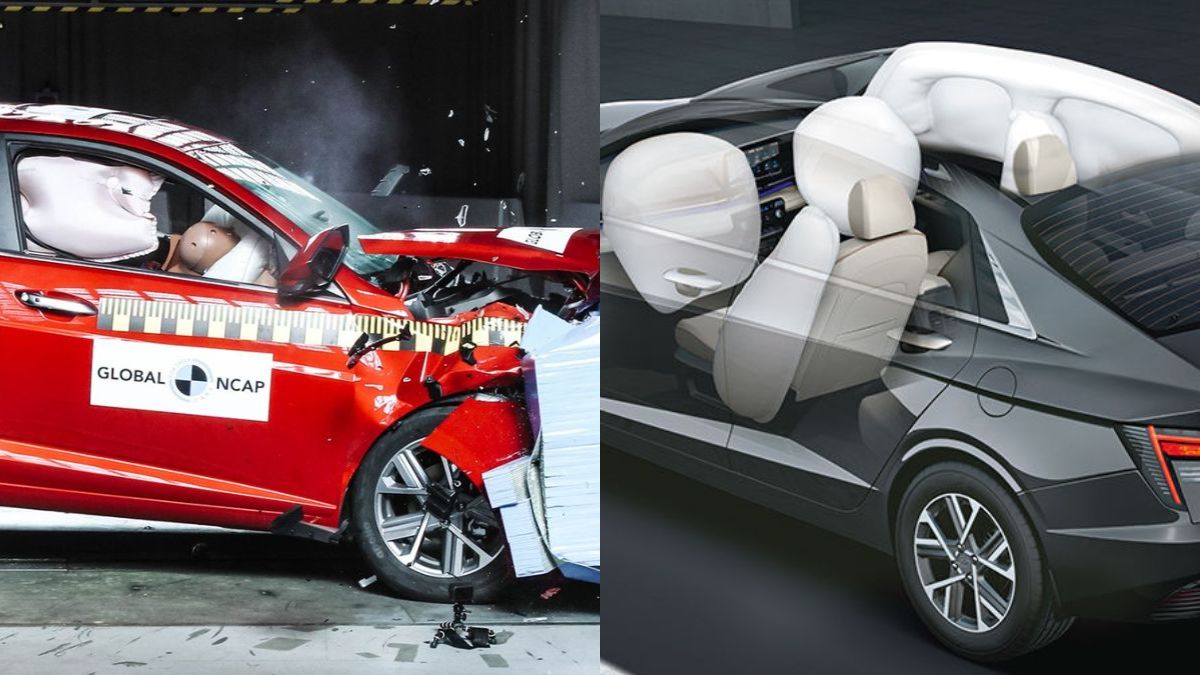- By Divanshi Sharma
- Fri, 15 Dec 2023 09:08 PM (IST)
- Source:JND
Year Ender 2023: The Indian automotive industry has undergone significant transformations in 2023, with both car manufacturers and the government emphasising passenger safety. The introduction of the Bharat New Car Assessment Program (BNCAP), aimed at assessing the safety of cars in India, is among the significant developments in the Indian automobile industry. Meanwhile, automakers such as Hyundai and Kia have taken proactive steps by making six airbags mandatory across their entire vehicle lineup. This safety standard is expected to be adopted by other Indian car manufacturers, including Tata and Mahindra. Furthermore, essential safety features in most vehicles have been introduced including standard elements like three-point seat belts, ISOFIX seats designed for children, traction control, anti-lock braking systems, tyre-pressure monitoring systems, and a range of Advanced Driver Assistance Systems (ADAS) features.
Bharat NCAP
The Ministry of Road Transport and Highways has introduced a new car safety rating program called Bharat NCAP. This initiative positions India as the fifth country globally to have its own safety assessment system for testing cars. Testing under India’s own safety rating system BNCAP has commenced today, December 15. Several automobile manufacturers like Tata, Mahindra, Hyundai, Maruti Suzuki, Kia among others have already voluntarily sent some of their models for testing under the BNCAP. Bharat NCAP has already received over 30 models to be tested under the programme. The Bharat NCAP tests will adhere to the same parameters as the Global NCAP, eliminating the need for separate GNCAP tests on Indian cars. The introduction of Bharat NCAP marks a significant step towards enhancing the safety standards of passenger vehicles in India.
Vehicles that will undergo the BNCAP tests will receive star ratings based on their performance in two distinct categories: Adult Occupants Protection (AOP) and Child Occupants Protection (COP). Bharat NCAP emblem and sticker will be present on cars with their safety rating score after clearing the test. The Bharat NCAP programme will not just test ICE vehicles but also CNG and EVs that are manufactured in India. The BNCAP assessment comprises three primary tests: the offset deformable barrier frontal impact test, the side impact test and the pole side impact test. To achieve a 5-star rating from Bharat NCAP, vehicles are required to achieve a minimum of 27 points for adult occupant protection and 41 points for child occupant protection.
Furthermore, cars that were tested under the Global NCAP testing faced increased development expenses for car manufacturers in India. The cost of testing a vehicle under the Global NCAP program was approximately Rs 2.5 crore whereas safety tests that will be conducted under the Bharat NCAP will only incur an approximate value of Rs 60 lakh. The introduction of Bharat NCAP tests is expected to help manufacturers in reducing these testing costs.
Safety Features
In addition to the introduction of Bharat NCAP, automobile manufacturers have been paying extra attention to safety when it comes to the built quality, structural integrity and features of their models. Hyundai was the first manufacturer in India to announce that six airbags will now be a standard feature across all their models present in the country. Following Hyundai, Kia which is a premium offering brand of the Korean manufacturer also confirmed that they will now be making six airbags a standard feature in all their models.
Moreover, most cars are now equipped with standard safety features like three-point seat belts, ISOFIX seats for children, traction control, anti-lock braking system, tyre-pressure monitoring system and various ADAS features that are now offered in almost every car in the Indian market. Talking about Advanced Driver Assistance Systems (ADAS), manufacturers have also been paying a great deal of attention to include ADAS features in their new and upcoming models for enhanced safety.

